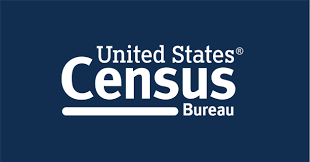The SAT should be mandatory.
The SAT is defined as “a standardized test that aims to measure students’ knowledge of math, reading, and writing, as well as their college readiness” and dates back to 1926. The test was only combatted near after the start of the pandemic in 2019 when colleges started to regard the test as inaccurate in gauging readiness and competence for college admissions. Despite the SAT’s ability to provide colleges with a standard to measure academic bandwidth, it has been seen as “harmful to a student’s self-esteem” and a tool to “marginalize certain racial groups” who can’t access the same academic aid as other students.
The two racial groups with the highest enrollment, White and Asian, are reflected in the diversity statistics of the five highest-ranking universities in the United States. When looking at the statistical diversity in top colleges, the immediate assumption is that there is some sort of inequality, but according to the University of California Academic Senate in a 228-page report that supported keeping the SAT/ACT requirement as part of college admissions, “The original intent of the SAT was to identify students who came from outside relatively privileged circles who might have the potential to succeed at a University.”
According to an article titled Eliminating College Admissions Exams Only Worsens Entrenched Inequities in the American educational news organization, the74million.org, “Unfortunately, eliminating standardized tests in college admissions does not increase racial and socioeconomic diversity. In fact, it exacerbates entrenched inequities by creating a system that prioritizes subjective measures over objective ones.”
The fact of the matter is that the primary consequence of test-optional policies in universities is increasing selectivity rather than diversity.
According to College Board research, minority students tend to earn slightly lower grades than predicted by the SAT, showing that the test is not biased against them.
Now that it has been established that diversity at colleges is not in its current state due to standardized testing being prejudiced in nature, the SAT’s efficacy in determining the “caliber” of students is now in question. With regard to caliber, SAT scores have been found to correlate very highly with SAT scores, and like IQ scores, tend to be stable and not easy to improve, per the New York Times.
Additionally, according to the College Board’s National SAT® Validity Study, which examines SAT score relationships with key college outcomes across a range of four-year institutions with information acquired from 223,000 students across 171 colleges, “On average, SAT scores add 15% more predictive power above grades alone for understanding how students will perform in college.”
Furthermore, according to the study, “Using the SAT in conjunction with high school GPA (HSGPA) is the most powerful way to predict future academic performance.”With the SAT being a clear predictor of student academic success at a university and being a uniform measurement of academic capability, the SAT is a great equalizer for universities to be able to evaluate academic capacity beyond GPA, which is subjective because it does not take into account the differences between difficulty depending on how a class is taught.
Additionally, according to the College Board’s National SAT® Validity Study, which examines SAT score relationships with key college outcomes across a range of four-year institutions with information acquired from 223,000 students across 171 colleges, “On average, SAT scores add 15% more predictive power above grades alone for understanding how students will perform in college.”
The SAT should be optional.
The SAT/ACT has long been seen as controversial. There have been accusations of racism, as students from wealthier white families have higher scores on average than Black or low-income students. For this reason and others, the tests are seen as flawed by many, including those involved with colleges. “[The SAT’s] efficacy as a predictor of college readiness has been challenged by researchers and college admissions officers alike,” said Rob Franek, editor-in-chief of the Princeton Review in an interview with AS USA.
The flaws in the SAT/ACT and its importance for college admissions are also seen by LACES college counselor Candice Mackey. “For students who are naturally great test-takers or have the means or extra time to pay for and study for SAT/ACT courses and tutoring versus those who do not have those means or have the time, the process for preparation, outcomes, and experiences can be inequitable,” Mackey stated.
The switch to test-optional admissions resulted in far greater diversity in colleges. Per NBC News, the University of Chicago had an almost immediate boost in diversity since moving to test-optional admissions in 2018. Their freshman class in 2022 had 56% more Black students, 26% more Hispanic/Latino students, 36% more first-generation students, and 33% more rural students than before the switch.
The number of applications to universities similarly skyrocketed. According to NBC News, since switching to test-optional admissions, Cornell University saw an increase of roughly 20,000 applications, going from 50,000 to about 71,000.
The increase in diversity and the increase in overall applications are two convincing reasons why the SAT should be optional for college admissions. A wider range of students are able to attend college and more students are confident enough in their applications to apply to top schools.
Beyond statistics from colleges themselves, Mackey herself believes that the SAT should be optional for college admissions. “There are many areas to evaluate a student’s college readiness, preparedness, and fit for college admissions that extend beyond the performance of a 2.5 or 3.5-hour standardized test,” Mackey said.
Some of the other areas to evaluate a student’s college readiness are more accurate than the SAT. A Cal State University study from edsource.org that analyzed SAT scores, Smarter Balance assessment scores, and the 2016 freshman class’ GPA found that high school GPA is a greater predictor of college success than standardized testing.
Mackey agreed that other factors are a greater determinant of college success, stating that “[College readiness] can be assessed through their academic profile which includes: classes they enrolled in, how they performed in their classes, AP exam scores, community college courses taken.” Other factors that contribute to this assessment include extracurricular interests, activity engagement, and commitment to extracurricular activities.
Given that experts from both high school and college find that the SAT is not the most accurate determinant of college preparedness, a greater amount of applications submitted and much-improved diversity at universities after going test-optional definitively proves that the SAT and other standardized tests should be optional for college admissions.























